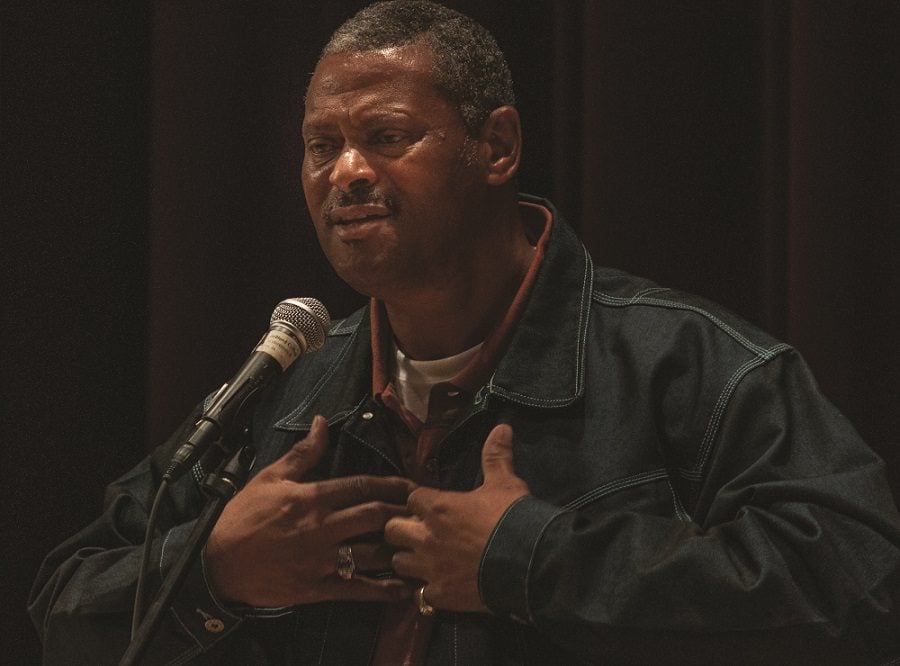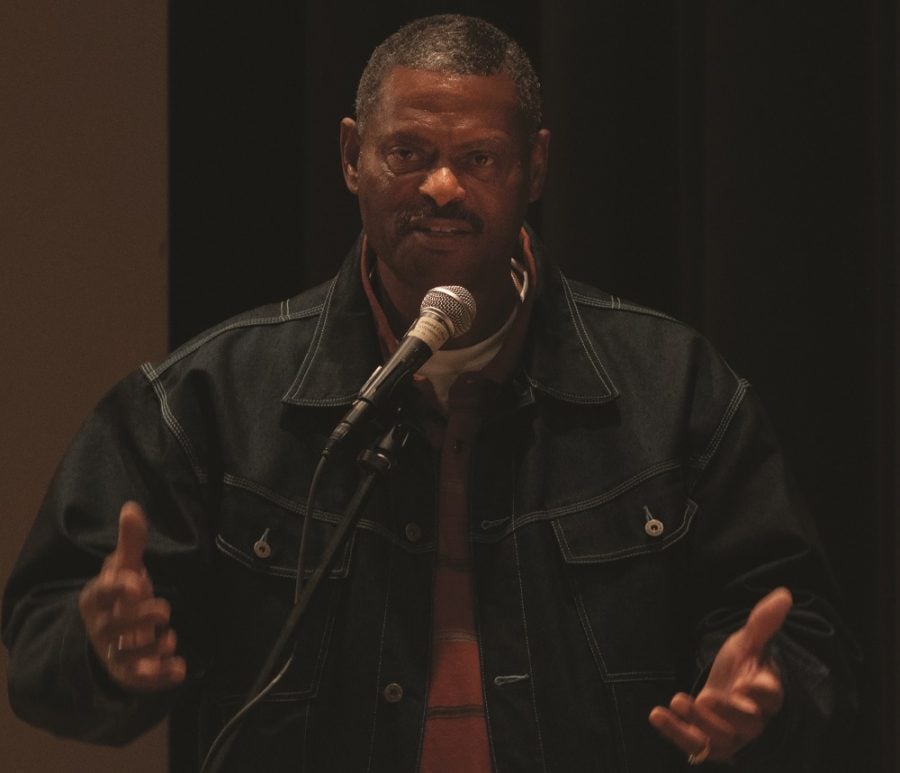Howard Dudley spent 23 years in prison for molesting his daughter.
Not only was he innocent of that crime, but according to Dudley, he never committed any crimes at all.
“I’ve never been on drugs, I never sold drugs,” said Dudley. “I never stole nothing. In the sense of being a good person, my whole family were pretty good people.”
On Feb. 3, Dudley told his story to about 40 students, faculty and members of the community in Dana Auditorium, after which a panel of lawyers and scholars discussed the work of preventing and overturning wrongful convictions in North Carolina.
“We wanted to throw an event that everyone could get involved in,” said Amber Echerd, senior and Student Government Association president for the CCE program. “I wish we would have had a bigger turnout, but I’m happy with the turnout we had.”
The panel was moderated by Robert Norris, assistant professor of Government and Justice Studies at Appalachian State University. The panelists included Jamie Lau, the supervising attorney for the Duke Law Center for Criminal Justice and Professional Responsibility and Chris Mumma, executive director of the North Carolina Center on Actual Innocence. Both lawyers were involved to some degree with Dudley’s case.
Catherine Bonventre, assistant professor of Justice and Policy Studies at Guilford, introduced the panel.
“I was really fascinated to hear from the people who work on these (cases) day in and day out,” said Gregory Woods, interim Campus Minister.
Dudley’s story began when he had a daughter with his then-girlfriend and then separated from her. He later married another woman, with whom he had two sons.
“I was not a very good boyfriend, but I was a very good father,” said Dudley.
According to Dudley, after his marriage his former girlfriend encouraged their daughter to falsely accuse Dudley of molesting her. Dudley was offered a plea bargain.
“I asked my lawyer, ‘Well, what’s a plea bargain?’” said Dudley. After he realized the plea bargain would mean confessing to the crime, Dudley refused to take it and went to trial.
“The police department’s investigation into a case for which he was facing a life sentence in total lasted 40 minutes,” said Lau, who worked on the case to exonerate Dudley. “Howard’s attorney, when Howard was facing a life sentence, worked a total of 14 hours on his case.”
Dudley was sentenced to life plus three years.
“The only thing I had to fight with — hear me and hear me good — was truth,” said Dudley. “And that was enough.”
Lau and others finally managed to obtain a hearing for Dudley, where the judge ruled him innocent.
In compensation for 23 years behind bars, Dudley received a $45 gate check when he left prison. Any other compensation would require a governor’s pardon, which Dudley has not yet received.
“I think it was important for this community to hear this story,” said sophomore Austin Bryla, who attended the event. “I talked to (Dudley), and he said he believes his story will bring light to something that has been dark to us for a very long time.”
Dudley’s case is unusual, but not unique. According to Mumma, the most conservative estimates place the number of wrongfully convicted people in prison at one percent.
“That’s 380 people in North Carolina who are in prison for felonies,” said Mumma. “That doesn’t count misdemeanors.”
Mumma continues to work not only to overturn wrongful convictions, but also to implement policy to prevent them happening in the first place. Along with Lau, she is determined to prevent innocent people from going to jail and ensure guilty people do not go free.
“When you have people getting locked up for something it turns out later they didn’t do, it shows there’s still a lot of progress to be made,” said Bryla.














